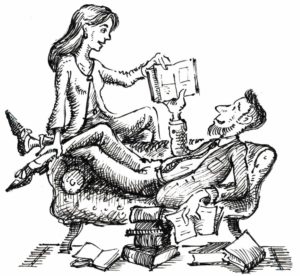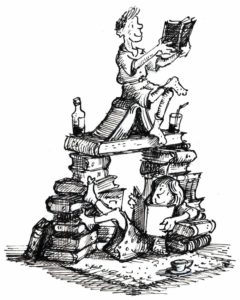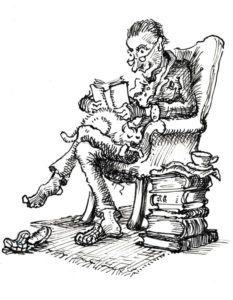1920s: Inequality & the Last Hurrah
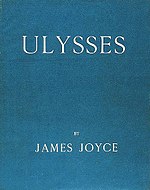 Ulysses [1922]
Ulysses [1922]
James Joyce (1882-1941)
The possibly greatest (and definitely the most famous) modernist novel of all time, Joyce follows the travels of his hero through Dublin of 1904, with the same sense of epic majesty as Homer did before him. With wide ranging allusions and dazzling wordplay, this is a novel that never ceases to amaze and always rewards rereading.
The Enchanted April [1922]
Elizabeth von Arnim (1866-1941)
A discreet advertisement in The Times addressed to “Those who Appreciate Wisteria and Sunshine…” is the impetus for a revelatory month for four very different women in the Italian Riviera. A fabulous and magical book, guaranteed to make you feel good about life.
The Life And Death Of Harriett Frean [1922]
May Sinclair (1863-1946)
A life of seventy years compressed into fifteen brief chapters, and a portrayal and brilliant study of female virtue seen as vice. This is one of the great innovative novels of the twentieth century.
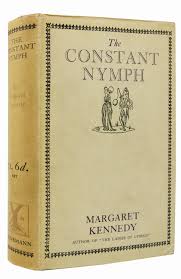 The Constant Nymph [1924]
The Constant Nymph [1924]
Margaret Kennedy (1896-1967)
This is the story of Teresa a precocious fourteen-year-old girl, the daughter of a brilliant and Bohemian composer, Albert Sanger. She falls in love with Lewis Dodd, a gifted composer like her father, and awaits maturity and the fulfillment of her love. Even when Lewis marries her cousin, it does not shake Teresa’s faith in her love and she remains his constant nymph.
A Passage To India [1924]
E.M. Forster (1879-1970)
The fate of individuals caught in the great political and cultural conflicts of the modern world is exposed when a mysterious incident occurs while Adela and her elderly companion Mrs Moore, intent on discovering the ‘real India’, are exploring the Marabar caves with Dr Aziz, who soon finds himself at the centre of a scandal that rouses violent passions among the British and their Indian subjects.
Precious Bane [1924]
Mary Webb (1881-1927)
Born at the time of Waterloo in the wilds of Shropshire, Prue Sarn is a free spirit cursed with a harelip – her ‘precious bane’. Her seemingly hopeless love for the weaver Kester Woodseaves unfolds, set against the tragic drama that ensnares her brother, a driven man who spurns the harmony of the natural world that her sister has always nurtured.
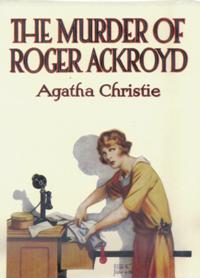 The Murder Of Roger Ackroyd [1926]
The Murder Of Roger Ackroyd [1926]
Agatha Christie (1890-1976)
Roger Ackroyd knows that the woman he loves has poisoned her first husband and suspects that someone has been black-mailing her. Now he learns that she has taken her life with a drug overdose. The post brings Roger one last bit of info-rmation, but he is stabbed to death before he can read it. This book cements Christie’s reputation as Queen of Crime, and moves away from traditional formulaic plots into experiment and excitement.
To The Lighthouse [1927]
Virginia Woolf (1882-1941)
This is the most autobiographical of Woolf’s novels. Based upon her experience of childhood, it touches on childish perceptions and desires, and explores adult relationships, marriage and class-structure. Her narrative makes ordinary moments almost luminous (well it does if you actually can get to grips with her prose style).
Lady Chatterley’s Lover [1928]
D.H. Lawrence (1885-1930)
Lawrence is superb when writing about relationships and this tale of lusty sexuality between the different social classes both shocked and delighted readers. Originally published in Italy in 1928, the publication in England in 1960 resulted in the famous obscenity trial. Prosecution counsel Mervyn Griffith-Jones shocked the jury by asking: “Is it a book you would wish your wife or servants to read?”
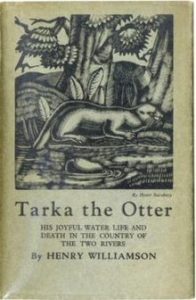 Tarka The Otter [1927]
Tarka The Otter [1927]
Henry Williamson (1895-1977)
Williamson regarded this book as one of the least important he wrote, but it is a brilliant depiction of life in the wild as seen through the eyes of an otter, and his most successful novel. Williamson was a brilliant novelist. His reputation has suffered because of his flirtation with right wing thought.
Parade’s End [1924-1928]
Ford Madox Ford (1873-1939)
Published originally in four parts, the novel focuses on Christopher Tietjens, an officer and a gentleman, the “last English Tory,” and follows him from the secure world of Edwardian England into the madness of the Great War, and recounts the complex relationship with his faithless wife, Sylvia.
Armed With Madness [1928]
Mary Butts (1890-1937)
A group of friends assemble in a remote country house. They embark on a mystical quest after discovering an ancient jade cup that ignites conflicting emotions. Butts’ writing style was unconventional (like her lifestyle), and was rich in its appreciation of landscape and myth.
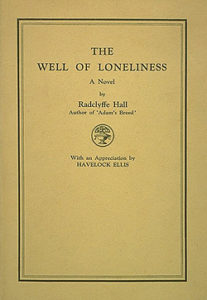 The Well Of Loneliness [1928]
The Well Of Loneliness [1928]
Radcliffe Hall (1883-1943)
The cause of the most famous legal trial for obscenity in British law, this book was banned in 1928 because of its lesbian theme (and became a bestseller). A father desperate for a son names his daughter Stephen. Unlike other girls, she hunts and fences, wears trousers and longs to cut her hair, and upon maturity falls in love, of course with another woman.


